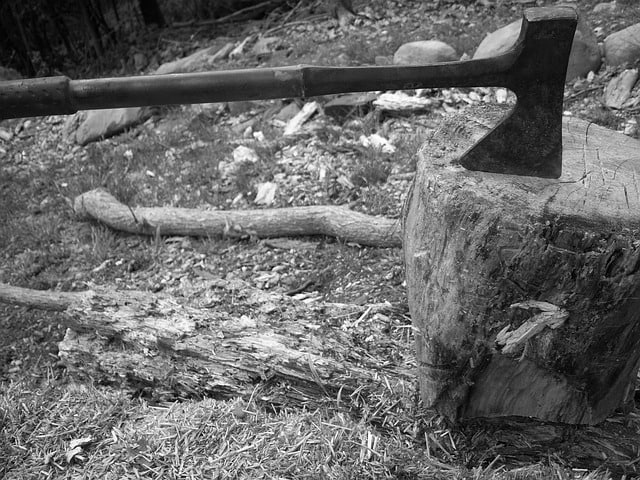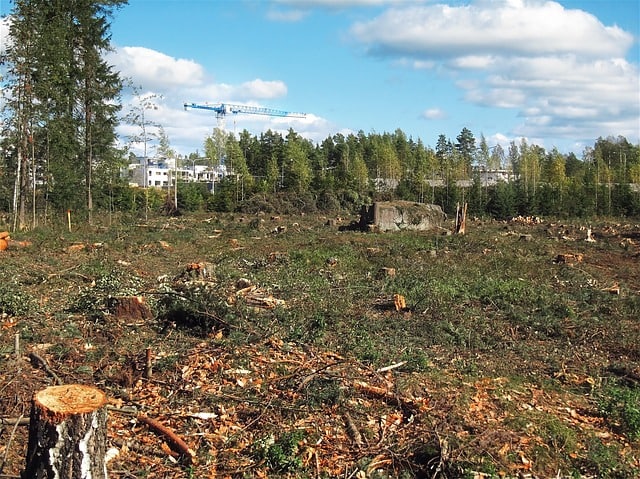Deforestation by definition refers to the activity of clearing the forest cover or trees on a larger extent without replacements. The result of this exercise often leads to the destruction of the quality of land, weather and even climate. The primary culprits in the deforestation exercise are loggers who are acting on legal and illegal instructions. Research studies indicate that the world has had approximately half of the tropical forests cleared through loggings where no new trees have been planted.
That can be translated into 18 million acres of land and it represents such a great loss to the environment. However, tree harvesting is not a criminal act, but the policy of environmental sustenance necessitates that when trees are cut down, they ought to be replaced with the new planted ones. There are several consequences of deforestation. Here is a detailed discussion of how deforestation affects climate change, animals and humans.
According to National Geographic,
“Deforestation is clearing Earth’s forests on a massive scale, often resulting in damage to the quality of the land. Forests still cover about 30 percent of the world’s land area, but swaths the size of Panama are lost each and every year. The world’s rain forests could completely vanish in a hundred years at the current rate of deforestation.“
One of the things that people don’t realize is that that natural beauty, those recreational forests, they have an economic development impact for the state as well.
~ Ed Rendell
How Deforestation Affects Climate Change
- It Reduces Soil Moisture and Leads to Desertification
In normal circumstances, the soil contains moisture. The moisture needs to be conserved and this can only be done successfully if there is forest cover. The crucial role that the trees play is that they cover the soil and prevent the soil from losing the water vapor. When the soil is heated, vapor is lost but when the tree canopies are present; no excess vapor is lost.
But with the continued acts of deforestation, water vapor is lost and the water cycle is broken. In return, no rainfall will take place because of the absence of trees. The whole process may end up in the emergence of a desert. Some of the worst desert conversion rates in sub-Saharan Africa have been associated with deforestation in west and central African forests.
- Increase of the Greenhouse Effect
In the normal circumstances, trees are always significant in the absorption of the greenhouse gases such as carbon dioxide, nitrogen and many others. A research by the Global Forest Research Assessment revealed that deforestation resulted in the release of approximately a billion ton of carbon dioxide in 2010. With the cutting of trees which results in the depletion of the forest cover, the concentration of the greenhouse gases increase the rate of global warming.
This leads to the inevitable climate change and adverse weather patterns such as severe flooding or drought. Some of the adverse greenhouse effects are the increased incidences of La Nina and El Nino. Increase of the greenhouse effect also raises the levels of evaporation and evapotranspiration and the higher temperatures cause extended dry spell periods and the exacerbation of drought conditions.
- Melting of the Icebergs
Deforestation in the cold Polar Regions also lead to the disturbance of the ice caps. Eventually, there is increased melting which further leads to the rise in the ocean or sea level. Climatic change is also a consequence of this activity. When such trees are cut and the ice begin to melt, there is that alteration in the weather pattern which also extend to the change in the climatic conditions in the Polar Regions. With the melting of the icebergs, there is the rise of sea levels which might give rise to intense flooding.
How Deforestation Affects Humans and Animals
- Vanishing of Species (biodiversity loss)
There are numerous species that depend on the forest habitats for survival, breeding, and development. It is estimated that about 80% of the world’s species live in the tropical rainforests. These species are specifically supported by the rich forest environments that provide them with food and shelter. In most cases, when there is deforestation, many animals that depend on trees for livelihood are disadvantaged.
To be precise, birds, reptiles, amphibians among many other classes of animals depend on trees for food and shelter. Whenever there is deforestation, these species that are lost either through death, migration, or the general degradation of their habitat. As an instance in this case, many animal species that were found in the West African Equatorial Rain forest have vanished without a trace. Furthermore, some animal species such as the Northern spotted Owl in the Western United States cannot survive in secondary forest habitat.
- Low Agricultural Produce
Humans may not be affected directly but as a result of the climatic change, they have to suffer from the consequences of their actions. Deforestation leads to the change in climate. This even further leads to the altered weather pattern. It can be characterized by the extreme heat or too much rainfall.
Deforestation also degrades soil quality and is a major cause of the world’s rapid desertification. Such weather patterns and environmental changes contribute to the plummeting of the agricultural production. Humans are hit by food shortage due to the low agricultural produce.
- Extreme Climate and Low Life Quality
Many people decry the extreme weather conditions such as the intense heat in the US, India and many other parts in Middle East, or extreme rainfalls in South America. But few people have thought about deforestation as the main contributor. This ramification is so severe. It lowers the quality of living conditions and leads to the emergence of various problems that may lead to death.
Extreme changes in climate patterns can alter creature’s habitats and decrease water and food availability. This may lead to loss of biodiversity, death and even extinction for the creatures without the necessary adaptive mechanisms.
- Natural Disasters
Though this may not come directly as a result of deforestation but it is a consequence of climate change. Natural disasters such as flooding may be caused by the climate change and they mostly result in deaths or displacement of people. Without trees there is also increased soil erosion which depletes soil fertility and the final outcome is the loss of arable land. In the long-term, it results in famine, hunger, and food insecurity. Deforestation also heightens the possibility of complete desertification which can worsen the effects of drought and aridity.
- Disrupted Livelihoods
Thousands and thousands of people all over the world are contingent upon forests for hunting, gathering and medicine, small-scale agriculture and forest resources such as rubber and palm oil. However, deforestation interferes with the lives of such people, at times with wrecking consequences.
In some areas deforestation has contributed to migration and social conflicts. Accordingly, thousands of people lose their source of livelihood on the account of deforestation.
- Disruption of the Water Cycle
Trees play a critical role in facilitating the continuity of the water cycle which aids to maintain a balance between the water in the atmosphere and the water on land. But when deforestation takes place, the water balance goes away, resulting in changes in water cycle.
The direct outcome is alteration of habitats that depend on particular precipitation pattern, river flow or water availability from adjacent water sources. Species losses may occur whenever the water cycle is disrupted.







